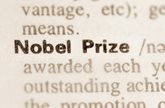
Latin American verse and prose are vibrant and voluptuous parts of the canon of world literature. In Chile, where they proudly boast two Nobel laureates, it is touching to see the relationship between seasoned and novice writers particularly in the very personal way the country’s three best known scribes have passed down the baton from one to the other in an unbroken line.
Gabriela Mistral (1889-1957) was the first Latin American (she remains the only Ibero-American women) to receive a Nobel Prize, which she earned in 1945 for her gripping poetry. But Mistral was already well known in both her native Chile and throughout the region not only for her literary efforts but for her work within the national school system. Benefitting from the uniquely Latin American custom of underwriting artists and writers by giving them consular posts in Chilean embassies abroad, Mistral was able later to travel extensively throughout the world. But her powerful poetry remained assiduously focused on her search and celebration of Latin American identity.
Mistral was an enthusiastic mentor of Chile’s most famous poet, Pablo Neruda (1904-1973), who like Mistral won the Nobel Prize for literature although his leftist political beliefs and enthusiastic support for Josef Stalin gave the committee some pause. Like Mistral, Neruda worked in Chile’s embassies and consulates throughout the world. During his time in Barcelona and Madrid, he became very close to the Spanish poet Lorca and was devastated by his murder by Franco. This catapulted Neruda into communist politics, a passion which would remain with him for life.
Neruda’s
Canto General is a celebration of the ancient civilizations of Latin America, inspired by a visit to Machu Picchu the poet made in 1943.
Canto General owes more than a little to Dante’s
Inferno, and like the Italian epic, Neruda explores universal themes as he makes a physical and spiritual journey.
Canto General also tackles the nagging questions of slavery and colonialism, so germane to any exploration of Latin American identity.
Neruda was exiled twice from Chile for political reasons, but was feted in 1971 when he won the Nobel Prize. Soon after, a nervous young journalist called Isabel Allende was dispatched to interview him. During the interview, Neruda berated Allende, urging her to switch from journalism to fiction.
"You can never be objective. You’re the worst journalist in this country. Why don’t you switch to literature, where all these defects are virtues?"
Allende heeded Neruda’s advice after she in turn was forced to flee Chile in the wake of the CIA-backed coup of 1973. Her resulting body of work comprises 20 books including The House of Spirits, Daughter of Fortune, Aphrodite, Paula, and others, which have been translated into 35 languages and sold over 60 million copies.
Allende’s prose - she still writes in Spanish - is a rich mix of history and fantasy, which she adroitly fuses into her own inimitable style. The supernatural is as much a part of Allende’s fiction, as it is her writing regime: she always begins a new book on January 8th, and keeps a candle burning on her desk while she works. Through her foundation, Allende is active in supporting many young writers in Latin America, just as Mistral and Neruda before her.
Alexander+Roberts offer many ways to explore Chilean and South American art, culture, nature, and history through innovative itineraries such as the popular
Easter Island & Patagonia.